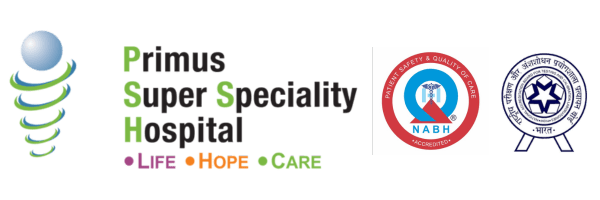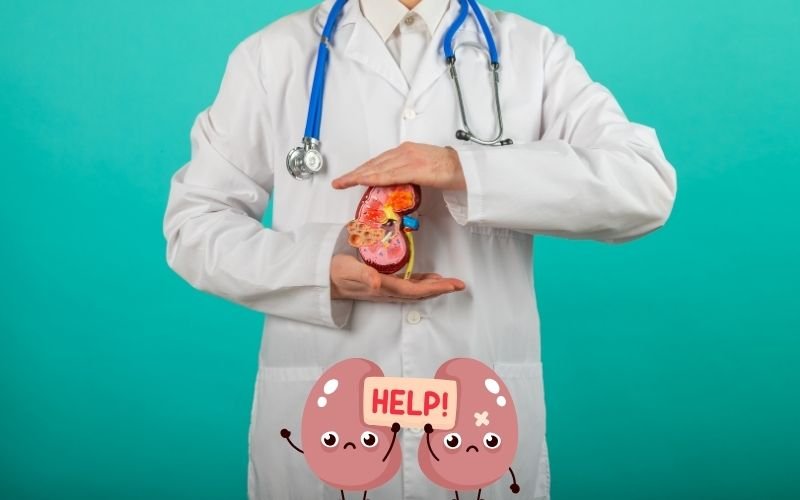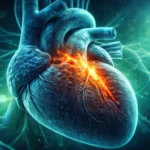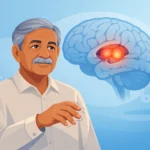Renal concretion is a medical condition that refers to the formation of hard deposits in the kidney, commonly known as kidney stones. These deposits can block the normal flow of urine and lead to pain, infection, or even kidney damage. While many people refer to it as kidney stones, the medical term renal concretion encompasses a broader understanding of calcified masses in the urinary tract.
As compared to other kidney diseases that manifest themselves gradually, early symptoms and treatment of renal concretion are important because it is sudden in nature. Whether it is in the format of left renal concretion, right renal concretion or bilateral renal concretions, the symptoms and risks cannot be overlooked since they are very considerable indeed.
What is Renal Concretion? Definition and Formation
Renal concretion meaning refers to the accumulation of minerals—mainly calcium, uric acid, or oxalate—that crystallize and harden inside the kidney. When these particles stick together and form a solid mass they become what is known medically as renal calculi or concretions
Right renal concretion or left renal concretion refers to the specific kidney affected. In some cases patients may have bilateral renal concretions meaning both kidneys have stones. These concretion types vary in size, number and location each requiring a tailored approach to treatment
Causes of Renal Concretion
Several reasons can lead to the development of these hardened masses inside the kidney:
- Dehydration: Not drinking enough water increases the concentration of minerals in the urine, which can lead to crystallization.
- Diet: High intake of salt, protein, or oxalate-rich foods like spinach can increase the risk.
- Genetic Factors: If kidney stones run in your family, your chances are higher.
- Medical Conditions: Hyperparathyroidism, urinary tract infections, or digestive diseases can contribute.
- Medicines: Certain diuretics and calcium-based antacids may increase the chances of forming renal concretions.
Symptoms of Renal Concretion
Renal concretion symptoms can vary depending on the stone’s size, location, and whether it’s moving through the urinary tract. Common signs include:
- Sharp or cramping pain in the back or side
- Pain during urination
- Blood in urine
- Nausea or vomiting
- Urge to urinate frequently
- Fever and chills (if infection is present)
If you experience any of these, it may be time to consult a Nephrology hospital in Delhi.
Diagnosis of Renal Concretion
To accurately identify and locate a renal concretion, doctors may recommend:
- Ultrasound: A non-invasive way to spot stones in the kidney or bladder.
- CT Scan: The most sensitive test that provides detailed images.
- X-ray: Often used to track large stones over time.
- Urine Test: Detects infection or crystals.
- Blood Test: Evaluates calcium, uric acid, and kidney function levels.
A diagnosis like right renal concretion in Hindi or English may be given in reports, but the treatment remains consistent regardless of language.
Renal Concretion Treatment in Delhi
Renal concretion treatment depends on the size, number, and location of the stones. Here are the main treatment methods:
1. Increased Fluid Intake
Small concretions may pass naturally. Drinking 2–3 liters of water per day helps flush out the kidney.
2. Medications
Nephrologist in Delhi prescribe:
- Pain relievers
- Alpha-blockers: Help relax ureters and ease stone passage
- Uric acid reducers for specific stone types
3. Shock Wave Lithotripsy (SWL)
High-energy sound waves break large stones into smaller pieces, which can pass through urine.
4. Ureteroscopy
Used for stones located in the ureter. A thin tube is inserted through the bladder to remove or break the stone.
5. Percutaneous Nephrolithotomy
This is a surgical procedure where a small incision is made in the back to remove larger stones.
6. Kidney Swelling Management
If concretions block urine flow, the kidney may swell—a condition needing kidney swelling surgery in severe cases.
Prevention from Renal Stones
Once you’ve had a renal concretion, your chances of developing another are higher. These tips can help prevent recurrence:
- Stay hydrated
- Eat a balanced, low-oxalate diet
- Limit salt and animal proteins
- Regularly monitor kidney health with your nephrologist
- Take prescribed medications consistently
The Link Between Urinary Tract Infections and Renal Concretion
Many people don’t know that recurring urinary tract infections (UTIs) can lead to renal concretions. When bacteria from a UTI reach the kidneys, they sometimes cause chemical changes in the urine. These changes increase the risk of stone formation.
Infection stones, also known as struvite stones, grow quickly and can become large. These types of concretions mostly occur in women due to their shorter urethra. If not treated early, these stones may block urine flow and damage the kidney.
Doctors suggest treating UTIs quickly and completely. Ignoring even a mild infection may allow bacteria to thrive in the urinary tract, especially in those with low immunity or poor hygiene practices. Preventing recurrent UTIs can lower the chance of forming left renal concretion or right renal concretion, especially in people with previous stone history.
A complete urine culture test and kidney imaging can help identify infection-related concretions early. Patients should consult a nephrology hospital in Delhi if they have repeated UTIs or flank pain after treatment.
Role of Diet and Hydration in Renal Stone Management
Your everyday food and water habits affect your kidney health more than you may think. Diet plays a big role in both preventing and managing renal concretion. Certain minerals in foods can cause or worsen stone formation, especially when water intake is low.
Doctors often suggest drinking 2.5 to 3 liters of water per day. It helps dilute the minerals in the urine and lowers the chance of stone formation. People who live in hot climates or have active jobs may need even more fluids.
When it comes to food, here are some key tips:
- Limit salt: Too much salt increases calcium in the urine.
- Avoid high-oxalate foods: Spinach, beets, and nuts can trigger renal concretion treatment needs.
- Moderate protein: High meat intake leads to uric acid stones.
- Add calcium through food, not pills: Calcium binds to oxalate in the gut and prevents its absorption.
- Cut down on sugary drinks: Soda, especially cola, may increase kidney stone risk.
Dietitians at a best kidney hospital in Delhi can create custom meal plans that suit individual stone types. This step is often missed but can prevent bilateral renal concretions and repeat hospital visits.
For effective diagnosis, prevention, and treatment, choosing a reputed hospital makes all the difference. You need a team of experienced Kidney doctors, advanced imaging tools, and updated treatment protocols. Whether you’re dealing with left renal concretion, right renal concretion, or bilateral renal concretions, the right care can prevent complications like infections or kidney failure.
If left untreated, renal concretions can lead to serious health problems:
- Chronic kidney disease
- Repeated infections
- Kidney tissue damage
- Urinary blockage
- Sepsis (in severe cases)
Can Renal Concretions Return After Treatment?
Yes, renal concretions can return even after surgery or medication. This is especially true for patients who do not change their daily habits. Some people have a genetic tendency to form stones. Others may live in areas with hard water or follow a high-salt or low-fluid diet.
Doctors say the risk of recurrence is high if the root cause is not treated. It is a treatable condition if diagnosed early and managed properly. Ignoring symptoms or delaying treatment can lead to severe health issues. If you are searching for expert care, Primus Hospitals in Delhi is a trusted name in nephrology.
As one of the best nephrology hospitals in Delhi, Primus offers advanced diagnostic tools, a team of experienced specialists, and patient-friendly treatment plans. Whether you’re facing right renal concretion, left renal concretion, or bilateral renal concretions, the team ensures complete care from diagnosis to recovery.
From modern renal concretion treatment to surgical care and follow-up, Primus Hospitals stand out as a dependable nephrology hospital in Delhi.
FAQs
There is no major difference. “Renal concretion” is a broader, more medical term that includes all hardened deposits in the kidney, including stones.
Yes, they can block urine flow from both kidneys, which can result in kidney failure if not treated.
Most modern treatments like SWL and ureteroscopy are minimally invasive and come with short recovery times.
Staying hydrated, reducing salt, avoiding oxalate-rich foods, and exercising regularly all help.
Immediately. Waiting can make the condition worse and increase the risk of complications.













